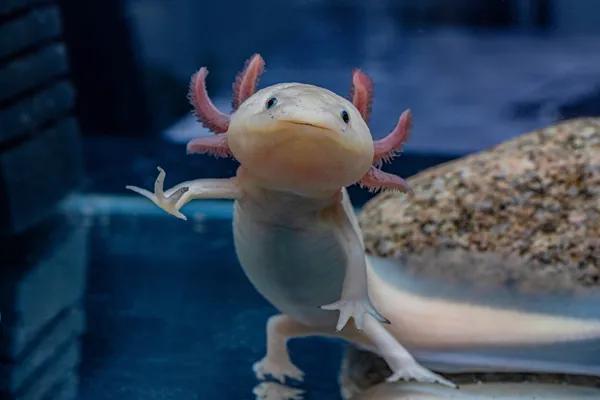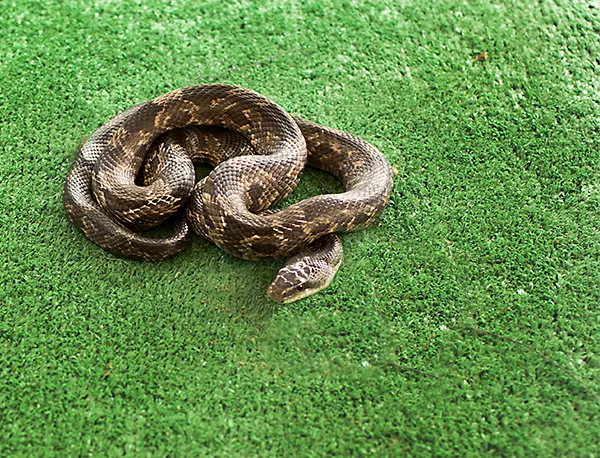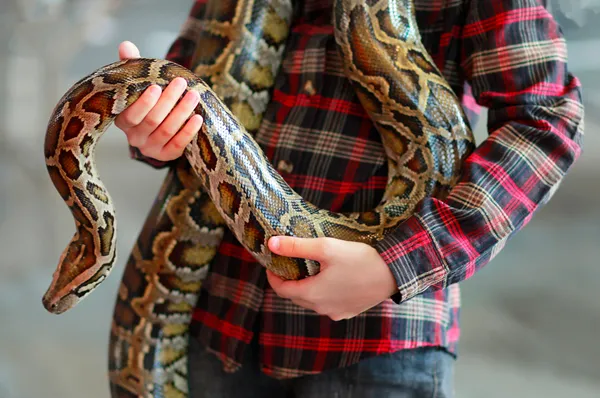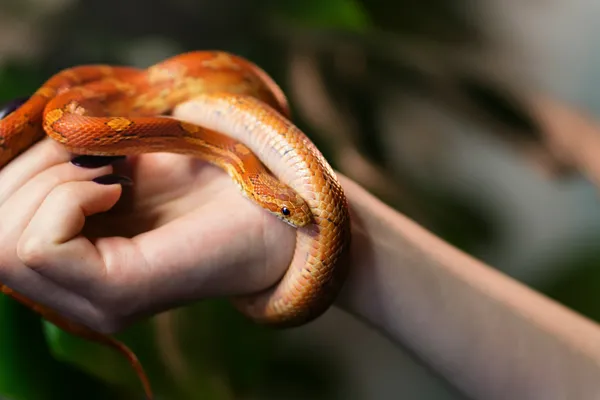Axolotls as Pets

Axolotls are purely aquatic amphibians. They retain external gills and a paddle-like tail for their entire life. This handout outlines habitat and food requirements, as well as potential health concerns for your pet axolotl.
Reptiles: Gout

Swellings on or around the joints in reptiles can be an indication of uric acid deposits in the area. This condition is referred to as gout. Gout is often painful and may also affect internal organs. Treatment will require medications and sometimes surgery.
Reptiles: Dystocia

Abdominal swelling in any reptile is always a concern that needs to be brought to the attention of a veterinarian well versed in reptile medicine. In female reptiles, this swelling often means that the individual has eggs or fetus that are ready to be delivered. When the female cannot deliver the eggs or babies, this is referred to as dystocia. This condition can be life threatening and need attention ASAP.
Loss of a Pet – Grief and Bereavement

Grief is the normal and natural response to the loss of someone or something. It is a full body experience that includes physical, emotional, cognitive, social, and spiritual responses. The best way to manage your grief is to be reassured that these reactions are normal and to let them run their natural course. Grieving takes time. Usually it gradually lessens in intensity over time, but if it doesn’t, then professional counseling may help.
Iguanas: Diseases

Iguanas are generally a very hardy reptile under that proper conditions. There are a number of common ailments that affect iguanas. Early communication with a reptile veterinarian about changes in your iguana’s health status is critical.
Dexmedetomidine

Dexmedetomidine is a sedative/tranquilizer used primarily in cats and dogs as a pre-medication injection for anesthesia or for chemical restraint. It is also used orally in dogs for short-term anxiety management. The most common side effect is a low heart rate. Dexmedetomidine should not be used in patients with severe heart liver or kidney disease. It should be used cautiously in young, old, or weak animals. Consult your veterinary office immediately if you suspect a negative reaction or overdose.
Veterinary Care: New Reptile Visit

Yearly health examination for all reptiles is highly recommended. Since reptiles are excellent at hiding symptoms illness, it takes an experienced reptile veterinarian to assess the true health of your pet reptile. Blood tests, fecal examinations and/or radiographs may be performed during the health visit.
Snakes: Housing

It is key for the health and safety of all snakes that proper housing be planned for the eventual adult size of your pet snake. For their enjoyment, hide boxes and branches are beneficial additions to the caging environment. Proper bedding, lighting and heat sources will differ depending on the species and size of your snake.
Snakes: Constrictor

While there are many species of pythons and boas, those noted here are among the easiest to keep. However, constrictor snakes, like the very large, reticulated python, can be dangerous in the hands of an inexperienced keeper, while others, such as the royal python, can be frustrating because of their long periods of not eating.
Snakes: Colubrid

The family of Colubrid snakes comprises over 1,000 different species. Most individuals in this family of snakes, except the boomslang snake, are non-venomous. Colubrids generally make very good pets and come in a variety of colorful patterns.
